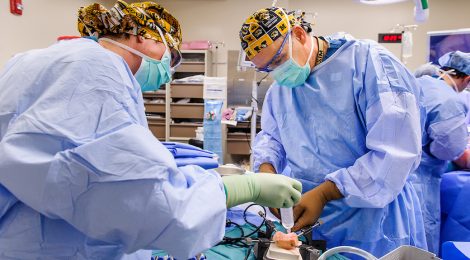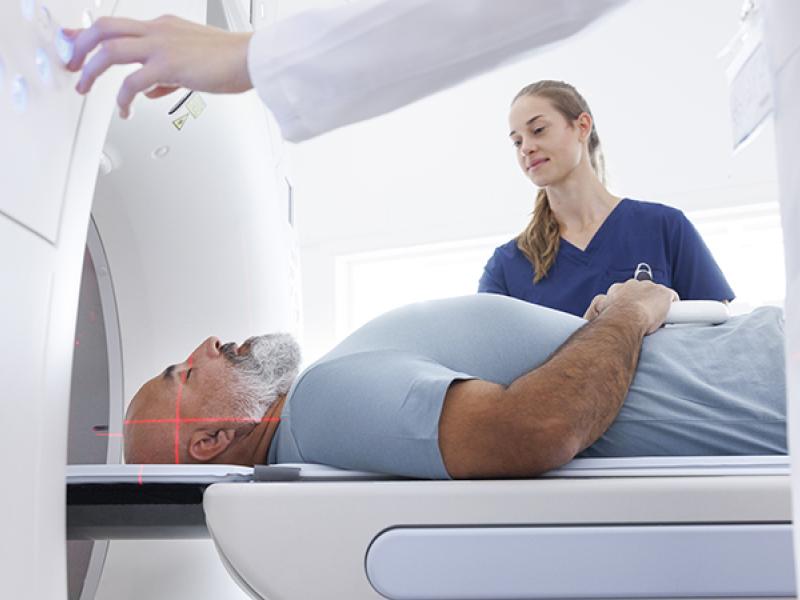
The University of Missouri’s Mizzou BioJoint® Center recently received two grants from the United States Department of Defense to further determine how the surgeries performed at the Mizzou BioJoint® Center can help soldiers and civilians recover from injuries to their knees and ankles. The biological joint restoration surgeries performed at the Mizzou BioJoint® Center use natural tissue grafts of cartilage, menisci and/or bone to improve joint function in young, active patients.
Knee and ankle injuries often lead to post-traumatic osteoarthritis (PTOA). PTOA is the primary reason for disability discharge among all U.S. military personnel. Additionally, one in three active duty personnel suffers from PTOA. A $2-million grant enables the BioJoint team to further explore how well the procedure works for military personnel and other highly active patients with injuries to their knee or ankle that inevitably result in PTOA.
James Stannard, MD, medical director of the Missouri Orthopaedic Institute and the Hansjörg Wyss Distinguished Chair of Orthopaedic Surgery at the MU School of Medicine, will serve as principal investigator for the clinical study. The BioJoint team will collect and analyze an extensive amount of data to further document how well these biologic joint restoration surgeries can work for patients. Additionally, the team will continue to follow all soldiers, and civilians, who receive surgeries at the Mizzou BioJoint® Center for their entire lives.
“During my 10-year active duty career that included tours with the 82nd Airborne Division, I saw firsthand how big a problem PTOA is for soldiers,” Stannard said. “It is an honor to be able to work with the Department of Defense to solve this critical medical issue.”
“Preliminary applications of the proposed treatment on soldiers and veterans have allowed them to return to high levels of activity and even active military duty,” according to the DOD’s written review of the funding proposal. “The proposed study can potentially have a positive impact and provide relief to military personnel diagnosed with PTOA.”
“Based on the reviewers’ comments, our grant proposal was successful, in part, because of the translational and collaborative nature of our program,” said James Cook, DVM, PhD, OTSC, director of the Orthopaedic Research Division and Mizzou BioJoint® Center at MU Health Care. “We have a multidisciplinary team of engineers, veterinarians, physicians, surgeons and scientists working side-by-side to make the treatments we provide at BioJoint as safe and effective as possible.”
This is a second-series grant the DOD has awarded the Mizzou BioJoint® Center. The first was a phase-one $1.1-million grant in 2015. The DOD sought phase-two grant applications only from projects that showed success in phase one. The acceptance process included a rigorous evaluation, including written reviews from both scientific and bioethics experts at the DOD.
The BioJoint team was also awarded a $570,000 grant as part of a collaborative study with the mechanical engineering department at Columbia University in New York, New York. Researchers will study the effectiveness of bending and shaping donor grafts to further optimize graft fit for individual patients. Engineering researchers will bend and shape grafts. Then, they will send those grafts to the Mizzou BioJoint® research team for further testing on how long the grafts remain viable and functional in a model that simulates what is done for patients.





